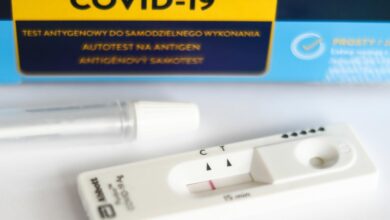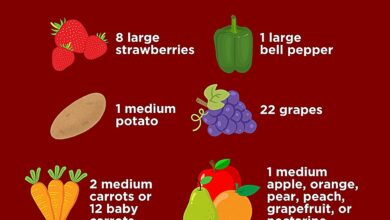‘Razor Blade Throat’ Symptoms As ‘Nimbus’ COVID-19 Variant Spreads

COVID-19 can cause a wide range of symptoms, including fever, cough, shortness of breath, fatigue, body aches, loss of taste or smell, and sore throat. While a sore throat is a common symptom of COVID-19, the severity and specific sensation of a “razor blade throat” may be more indicative of certain strains of the virus, such as the NB.1.8.1 variant.
The NB.1.8.1 variant, informally referred to as “Nimbus,” has been identified as a variant of interest by the World Health Organization due to its mutations in spike proteins and rapid spread. In the U.S., NB.1.8.1 has become the second most common variant, accounting for a significant percentage of COVID-19 cases.
Reports of “razor blade throat” associated with COVID-19 may be more prevalent with the emergence of the NB.1.8.1 variant. However, it is important to note that a sore throat can be caused by various factors, including other respiratory viruses, allergies, acid reflux, and environmental irritants. A prolonged or severe sore throat should prompt a medical evaluation to rule out underlying conditions and determine appropriate treatment.
If you experience a very sore throat, it is essential to seek medical advice from a healthcare professional for proper assessment and management. Avoid self-diagnosis and rely on qualified medical expertise to address any concerns or symptoms effectively.
While COVID-19 symptoms can manifest differently in individuals, vigilance and prompt medical attention are crucial in navigating potential health challenges associated with the virus. Stay informed, stay cautious, and prioritize your well-being in the face of evolving COVID-19 variants and symptoms.
Such an evaluation could involve taking a swab from the back of your throat and sending it for testing, checking for infections such as strep throat and SARS-CoV-2.
In today’s world, it’s common to hear people say, “I don’t think I have COVID” without following up with, “because I tested negative.” The only way to accurately determine if you have an infection like COVID-19 is through testing. The traditional throat swab test performed at a healthcare facility is much more reliable than at-home COVID-19 tests, which have a high rate of false negatives.
A sore throat has always been a potential symptom of COVID-19, becoming more prevalent with the emergence of the Omicron variants. Experiencing a sore throat that feels like razor blades may not necessarily indicate a new variant such as NB.1.8.1 causing different or more severe outcomes than previous variants.
Despite this, the presence of the NB.1.8.1 variant should not be taken lightly. COVID-19 continues to hospitalize and claim lives, as well as leave many individuals grappling with long-term effects. Even though COVID-19 may not be in the spotlight as much, it remains a significant threat. Evidence suggests that the NB.1.8.1 variant may be more transmissible due to its increased ability to bind to human cells, evident in its rapid spread.
While it is unclear how many cases of “razor blade throat” have occurred and their association with the new variant, it is prudent to be prepared for a potential resurgence of COVID-19, including during the summer months. Adhering to evidence-based precautions such as wearing high-quality masks, ensuring proper ventilation in indoor spaces, and practicing good hand hygiene is crucial. Additionally, staying updated on COVID-19 vaccinations is important, considering that vaccine immunity may decrease after four to six months. Maintaining a strong immune system can help prevent experiencing the discomfort associated with a “razor blade throat.”
By following these guidelines, individuals can protect themselves and others from the potential risks posed by COVID-19 and its variants.





